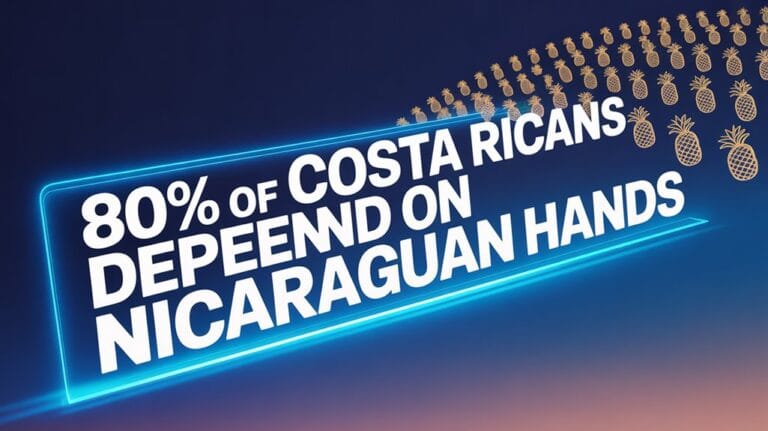A wave of Nicaraguans keeps streaming south. More than 161,000 entered Costa Rica in the initial six months of 2025. Around 139,000 went back in the same time. Their rapid trips show how deeply this small country now relies on them. Today, almost four percent of Costa Rica’s people are Nicaraguan refugees or asylum seekers. Over 80 percent of all asylum seekers here are from Nicaragua.
Migrant contributions sit at the heart of farms, building sites, homes and hotels. Most coffee, pineapple and sugar cane crops are picked by Nicaraguan hands. Crews pour concrete and lift bricks on new roads and towers. In houses across the country, Nicaraguan women cook, clean and care for kids and older adults. Guest houses and beach resorts fill beds and clean rooms with their help. This sector harvests 96,000 informal arrivals each year without checks. Yet huge numbers work off the books, so labor challenges slip past inspectors.
Repression, violence and scarce jobs push people to leave the north. Less than one in ten asylum requests are approved. That leaves many in limbo and pushes them into the shadow economy. Still, their wages prop up Costa Rica. They pay rent, buy food, and send cash home that bolsters both nations. At the same time, schools, clinics and shelters feel the strain of more than 200,000 new residents.
Policy makers face a knot. Farms and builders warn of lost harvests and stalled projects if the flow stops. Rights groups point to low pay, long hours and abuse in the fields. Budget cuts mean less money for shelters, so some workers sleep in parks. Language gaps and mistrust keep families from full community life. Border posts like Peas Blancas and Las Tablillas remain the only official gateways, yet thousands still slip through informal crossings.
The debate grows louder each week. Leaders promise fair laws yet also beef up patrols along the northern line. Workers keep riding buses, picking fruit, hammering nails, rocking babies. Costa Rica’s economy now turns on their steady presence.

